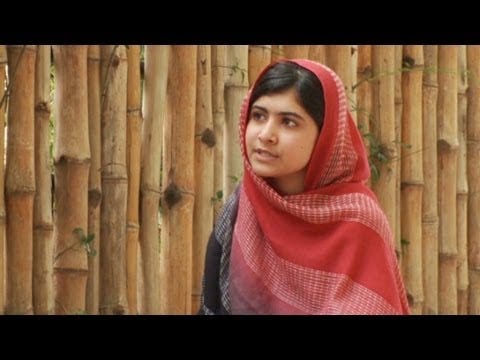The billion-dollar question: What happens when we educate girls?
This week, I’ve been delving into the UN Sustainable Development Goal No. 5: Gender Equality, and revisiting the story of Malala Yousafzai—the brilliant Pakistani education activist.
Embarrassingly, I knew very little about her until I picked up her book around age 24, back when I was working at an all-girls prep school in North London.
That job was an education in itself. It opened my eyes to how utterly life-shaping a solid education is not just in academics but in sparking the creative, uncontainable parts of us, the bits that dare to imagine things differently. It was also the first time I truly understood what a privilege it is to take schooling for granted.
Reading Malala’s story then was like taking a dose of ethical acid: that girls could be outright forbidden from learning was jarring. The absurdity of it. The injustice. The sheer wrongness of it all. And here I was, surrounded by girls for whom learning was as natural as breathing. Why are we still, in any part of the world, withholding something as basic as education based on gender?
So, with a mind like a philosophical labyrinth, I started to question the global cost of withholding education from girls and here’s my breakdown. 💰💰💰
For all the advances we’ve made, the simple fact remains: millions of girls are still kept out of classrooms. Imagine it. In 2024, in a world more connected than ever, so many girls are shut out of education, a cornerstone of self-discovery, independence, and opportunity.
Almost two-thirds of the world’s 775 million illiterate adults are women. And these aren’t just numbers, they’re futures and generations of potential lost. The World Bank tells us that while three in four girls globally complete secondary school, in the poorest countries, it’s just one in four. That’s not just heartbreaking; it’s staggeringly limiting for all of us.
Personally, I see the economic impact of withholding education from girls as colossal. Imagine global wealth losses anywhere between $15 and $30 trillion simply because girls aren’t educated. Educated women earn more, which, in turn, lifts entire communities. Women, with just a primary education earn 15% more than those without, while secondary education can nearly double their earning potential. And each additional year of school boosts a girl’s future earnings by up to 20%. Now, take those numbers and imagine the infinite possibilities if we allowed every girl a real shot at a good education, it would be a breathe of fresh air all round.
Educating girls isn’t just about economic growth; it’s a profound social catalyst and has a lot to do with creating a sustainable future for all. Educated women delay marriage, have fewer children, and are more likely to earn a living wage. Their children are healthier, more educated, and their communities are transformed. A 1% increase in women’s education can boost a country’s GDP by 0.3%, meaning prosperity for all.
The sad reality is that half of the 130 million girls not in school live in conflict zones just like Malala. They’re the ones who face the highest barriers to learning, the ones we must not overlook. Ensuring these girls have access to education is both a moral imperative and an economic necessity. It’s why every International Women’s Day, and every day in between, we need to remember the work that’s still ahead.
For me, I find the dynamic interplay between genders fascinating in the ever-evolving world we inhabit. As a white, privileged female from the western world I have benefitted from one of the best educations out there thanks to my parents and it pains me to think that another woman out there, a fellow sister would not have the same due to the location they were born or their cultural influences. Ultimately, I see education as the great equaliser. It gives girls skills, confidence, and a seat at the table. It raises GDP, contributes to tax revenue, and empowers women politically and socially.
Every girl in school is another step toward gender equality, another leap toward a world where opportunity isn’t tethered to gender.





